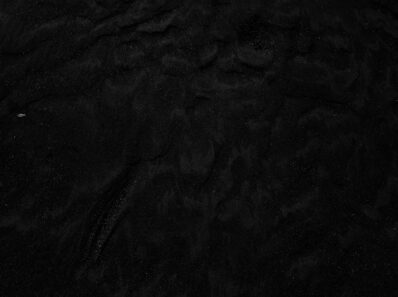The first day of my residency as an Emergency Department nurse was over a decade ago now, but it is a seal upon crimson wax, forever imprinted in my memory. It was the day I witnessed my first death, the true marking of my transition from childhood to adulthood. I was fidgety with nervous excitement as my clean shoes hit the floor. The picture on my ID badge, showed a naive grin on a baby face. Over the next couple of years, when I would clip her to my chest and feel her rest against my raw and weary heart, I would stifle a cynical laugh. But mostly I would ache for her, for innocence lost.
I recall the details of that day with alarming clarity—the way his skin appeared a mottled and unnatural bluish-grey as they wheeled him past me on the ambulance stretcher. A sweaty paramedic was hunched atop his chest precariously pumping and swaying while careening down the hall. The machines and monitors beeped ceaselessly as purposeful hands flew about the room with the effortless grace of experience. My eyes were transfixed on the foamy blood that sprayed out of the end of the ET tube with each compression. After nearly a half hour of CPR en route, my hands now took their place on his chest. Ribs which I knew had at first crunched, now felt spongey beneath my palms. My arms and back ached as I carried out those deep compressions I had practiced. No one could reach any family members, and so they were continuing the code much longer than usual. Fifteen more minutes passed and the sorrowful futility was palpable. Staff began murmuring about quality of life and not long after, the time of death was called. A heaviness descended as I allowed myself to feel the utter exhaustion physically, mentally, and emotionally. I remember fumbling with alien fingers, pulling out his wallet from vacant jeans, hoping unsuccessfully to find family contact information. I remember the loose change falling from his pockets, the mud on his boots. I remember his name.
As the adrenaline wore off, my brain became cloudy. The room felt stifling and I was unbearably hot. My vision began to narrow as the walls crowded in. All I could think was that I had to get out. I stumbled into the hallway with awkward tree trunks legs, and as the blood was pounding in my ears, I heard a faint voice from outside the void.
“Can I get a warm blanket? It’s so cold.”
Right outside of this lifeless man’s room, lying in a hallway bed, was an elderly woman. She was completely unaware of what had happened a mere 15 feet away from her. Through the fog I knew her worried eyes were searching me, seeking comfort.
I was sacked in the chest by the overwhelming reality that my world would now consist of this stark contrast—from dying breaths to warm blankets. I turned toward her with what I can only assume was an empty, glazed expression before continuing down the hallway. I don’t think I ever got her the blanket.
Amongst all of my ideas of what it would look like to be an ED nurse in “all of its glory,” this was not the part I had envisioned—the hundreds of different deathbeds I would stand beside. Young and old, alone and surrounded, sudden and long anticipated, violent and peaceful—from countless different causes and everything in between.
I started out on night shift in the winter, which in and of itself was a hard adjustment. My husband and I were on opposite schedules, so I went to work in the dark alone and I came home in the dark alone. And I soon found myself giving into this darkness. I spent months riding the roller coaster of every emotion imaginable. I can also remember the times when I longed to feel nothing at all and succumbed to the welcome arms of numb dissociation. But never for very long. I’ve never been very good at staying disconnected. I had no idea how to talk to the people I loved about what I was experiencing. The skilled verbal processor who never seemed to be short on words, was finding it difficult to process. I felt like I was the heavy rain cloud of sickening reality descending upon everyone’s happy, bubble worlds. I tried though, unable to completely disappear inside myself. I fumbled through explanations, and the people I still hold close were incredibly patient with me during that time.
There were many mornings after a long shift when I sat on the floor of my shower, crying while the hot water scalded my dirty skin. I prayed to wash away the burden of loss, especially the senseless and tragic deaths of children and the repulsive depravity of humanity at its worst. During fitful, daytime sleep, body bags piled endlessly in my dreams. I remember feeling irrationally angry that they were a happy, sunny yellow. It felt twisted. But this was misdirected anger, because in reality the yellow body bags were not malicious. The truth was that I was angry at God for what seemed like persistent, meaningless suffering. My current experiences were difficult to reconcile with my limited childhood theology. And as the trauma continued to repeat itself, this discrepancy became impossible to ignore.
I eventually pulled myself into a therapist’s office to talk through the PTSD from secondary trauma that all first responders carry to some extent. I found ways to process it, and people who could hold the grief with me. And against all odds, I wrestled for a faith that was deeper, richer, and more meaningful that it had ever been before.
As time passed, the dance of death became oddly familiar. The shock and awe eased with years of experience. Not always, but much of the time. And my perspective shifted as well. Since that first encounter with death, I have had what I now consider the privilege of being beside more deathbeds than I can count.
During the unexpected, sudden deaths, I have been the one, among many, moving quickly and assuredly to do everything possible to preserve the lives of the ones you love. I have been the one who continued to try even when I knew it would not be enough. I have been the one to speak the words when it was time to let go. And I have been present when you grappled with the reality of death “too soon.” At times, I have been your proxy, the one standing beside your loved ones in their final moments, whispering loving goodbyes, when no one was able to make it in time.
During the deaths you saw coming, but are always still “too soon,” I have helped you release and say the final farewells. I have silenced monitors with cascading numbers and often turned them off altogether, so that your last moments would be sacred and unspoiled by the anxiety of alarms and bright flashing lights on a screen. I have returned your worried looks with calm eye contact and reassurance. I have explained the final ragged and irregular breaths and stood by when it was blessedly quick. And I have waited patiently when it took a long time, assuring you that this too was normal. I have confirmed death with steady hands and silent nods, often with empathetic tears in my eyes.
I have smoothed back matted hair from damp foreheads and washed away obscuring and traumatic blood and dirt. I have closed vacant eyes on beautiful, still faces. When I could I have removed tubes, wires, and IV’s. I have tucked in blankets leaving out a hand to hold. I have been a shoulder to cry into, an arm to support weak knees. I have been the bringer of chairs, and snacks, and a cup of cool water or hot tea. I have stood near sometimes, when you needed the warmth. I have been the quiet presence in the corner when you wanted privacy, but felt too lonely to be in the empty room. I have waited outside the room at times as well, when you wanted space. I have been there through a myriad of grief responses: wailing hysterics, detached silence, raging anger, and every emotion or lack of emotion that can be imagined. And I have validated each and every one. Then when all is said and done, I have made the list of phone calls, tagged toes, delicately rolled already stiffening bodies, and zipped bags.
As much as possible, I have fought to remain present through it all. I have chosen not to dissociate when I could handle it. To see each sacred soul and honor it as it passed. And I have borne it all. Because this is my calling.
Early on, I remember asking fellow first responders for advice on how to carry it all; the crushing grief. Many counseled that I must compartmentalize to some extent and shut off the feelings for a time. But my heart has never been able to accomplish this for long. I was made to stay soft, to feel. Some would argue that being emotional somehow equates to weakness, but I disagree wholeheartedly. To see all that I have seen and remain tender is much more difficult than becoming calloused. I have always worn my beating heart on the outside of my chest. And while sometimes this means it becomes bruised and torn, it also means that I can fully exist, eyes wide open, with undeniable strength and endurance in places where many cannot.
And I see it now, what I couldn’t possibly have anticipated in my early twenties, when I hardly knew myself. I was sort of made for this.
Plenty of this rhythm of end of life care has been learned through repeated experience over the last decade. But much of it was as inborn in me as breathing, just waiting for the opportunity to emerge.
I’ve never been natural at small talk, and though I can fake it, I have always felt internally awkward. I want to skip to the part of the conversation that includes depth and vulnerability. Because the starchy beginnings, although necessary, often feel contrived.
But when I enter into the deeper spaces of grief, pain, and fear that we all experience—it is as if the whole of me suddenly fits. Like the over-sized jacket settles into place at the shoulders. I sigh an exhale of relief. It’s not that I enjoy or sadistically revel in sadness. Quite the contrary, I experience joy just as deeply and as frequently as everyone else. Maybe even more since I mostly stay connected to my emotions. When you choose to stay awake, you feel everything more poignantly. It’s just that the joy I experience is balanced by the full spectrum of emotions. I do not hide when the pendulum swings uncomfortably into the darkness.
Because this place is honest. This place is real. There’s no more posturing. The masks have fallen away and we stand on the same murky ground. I can see your soul here. And I suddenly and inexplicably know how to be, how to move, how to speak, or more importantly how not to speak. I am not restless here, no longer looking for exits. My eyes are locked, posture expectant, heart rate steady. I lean in close, and I could linger here for hours uninterrupted in this connected space. Even if the hours are silent and it’s just presence.
It’s not exactly something that someone adds to a resume or a list of strengths.
“Proficient in the art of grief.”
But maybe it should be. I realize more and more with age, as I shed shame, that this is a gift. And I’ve slowly learned to embrace it, the part of me that was made to tread in the deep waters with people. To usher the dead from this life to the next. To soothe fragile, grieving bodies. To cry beside broken forms on bathroom floors. To allow space for the tension where nothing feels like it will ever be ok again. To ache with another, when shattered pieces cannot be fixed. Goodbyes are sacred and I know that I was made to hold sacred things. To cradle pain and beauty with wonder in my delicate palms, because in my eyes they are intricately interwoven. And the world needs people like me.



Thank you for this, Katie. So beautifully said, and even more beautifully practiced by you every day to those in your care. I have a complicated history with grief and loss, and am on a journey to process it in a more healthy way. It is so needed, both in life and in this pastoring life. This was so helpful for me to read. Do you have any additional books or resources that have benefited you in the process?
♥️?♥️?♥️
Aww yes, Kathryn Eileen , the world does need people like you. I am grateful to be part of your world and to learn from it.
Love always,
Mom
Thanks mom, love you very much.